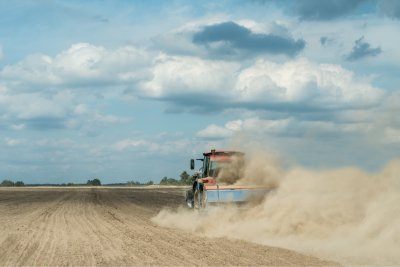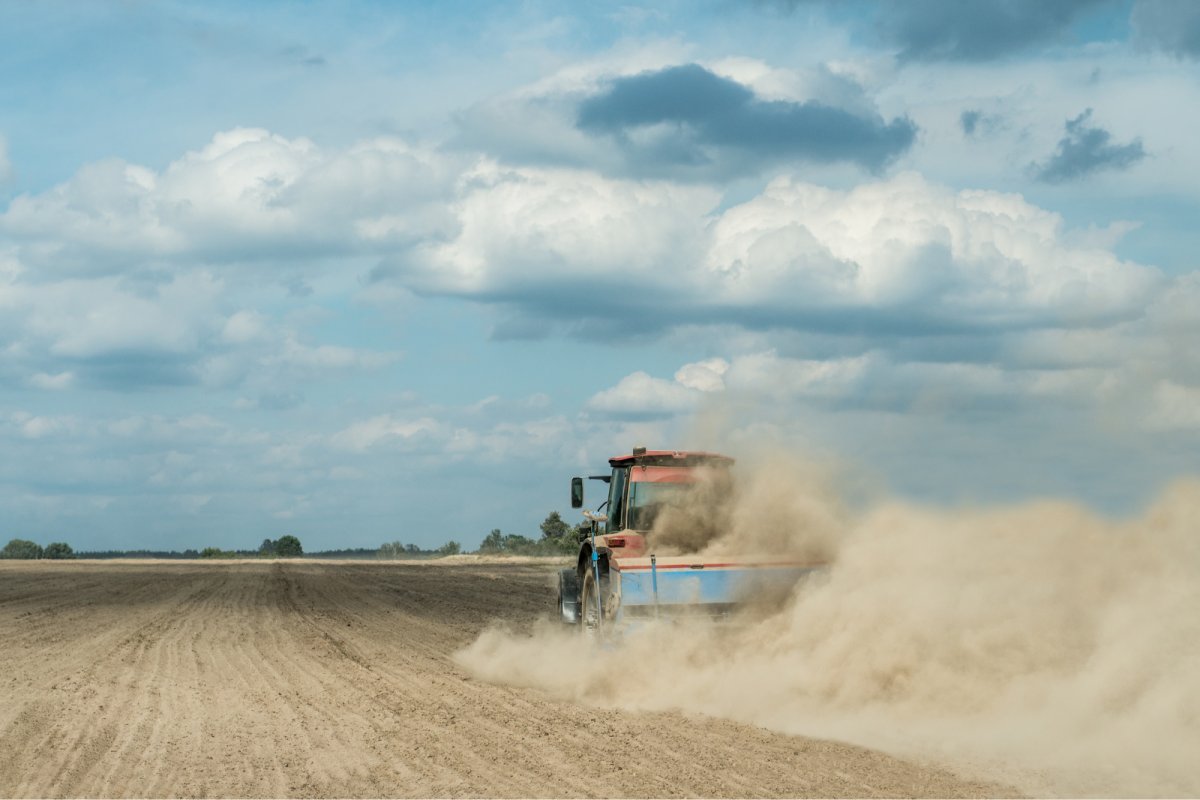 A tractor ploughing a dry field. Credit: Shestakov Dmytro
A tractor ploughing a dry field. Credit: Shestakov Dmytro

Farms are struggling to turn a profit, but higher yields are not the answer
The government has launched a review into farm profitability, but calls for greater intensification ignore decades of income stagnation and the impact on soils and wildlife. Nature-friendly farming and fairer supply chains are the way, argues Sustain.
Searching for solutions for a sector under increasing financial pressure, Defra appointed former NFU President Baroness Minette Batters in April 2025, to undertake a Farm Profitability Review. The review is being supported by a new Profitability Unit within Defra, and will put forward recommendations to make the agriculture industry in England more financially viable in the long term.
Sustain has responded to the review, emphasizing the importance of supply chain fairness and low-input farming methods.
Why is farm profitability important?
Currently, many farm businesses are struggling to remain financially viable. Many businesses are marginal or loss-making and face an uncertain future. For decades, unfair trading practices and low food prices have fueled a vicious cycle, where farmers are faced with a choice to “get big or get out”. With the cost of energy, labour, and chemical inputs on the rise, but farm gate prices remaining low, farmers must produce food in ever higher quantities to remain viable as a business.
Striving for improved profitability is a key driver of intensification, which results in the increased use of environmentally damaging practices such as the application of pesticides and other harmful agri-chemicals. Narrow profit margins, or even debts, mean that farmers have little wiggle room to invest in or experiment with nature-friendly methods on their farm. Transitioning to agroecological methods may result in lower yields initially, and often requires upfront investment – for example, in planting trees for agroforestry or in new tilling equipment that minimizes soil disturbance. If farming businesses are already on the brink, they will be unable to undertake this transition without substantial financial support.
Chasing higher yields is not the answer
Conventional wisdom in the agriculture sector has long dictated that greater “efficiencies” can cut costs and lead to higher yields, therefore higher profitability. However, research published earlier this year by the Food, Farming and Countryside Commission has founded that despite decades of improved productivity, farmers’ incomes have remained stagnant since the 1970s.
Although it seems counterintuitive, producing more food has not led to improved profitability for farm businesses. A combination of rising costs and low food prices has made it increasingly difficult for farmers to make a decent living. From 2019 – 2024, farm input costs rose by 44% on average, but this was not accompanied by an increase in profits, as global markets and powerful corporations have exerted downward pressure on prices. For every £1 spent in supermarkets, farmers often receive a negligible return for their produce (less than 1%).
“Efficiencies” can create more problems than solutions
Chasing every higher yields for decreasing returns has not just bled the farming industry dry, but lead to an intensified farming system that degrades our soils, destroys natural habitats, and pollutes our rivers. Paradoxically, these are precisely the ingredients we need for a resilient food system in the face of climate change. Without healthy soils, our farms are increasingly at risk of extreme weather events such as flooding and drought. Without diverse, balanced ecosystems, natural controls of pests and diseases in plants and animals will disappear, and farmers will become increasingly reliant on artificial inputs to produce food. Failing to adapt to climate change does not just pose a problem for farming businesses - it also threatens our food security.
So, what’s the solution?
In our submission to the Farm Profitability Review, Sustain argues that a transition to agroecological, low-input farming methods, supported by fair supply chains and bold policy reform, can transform UK agriculture into a prosperous, ecologically restorative and resilient sector. We made the following recommendations:
1. Strengthen supply chains and local food infrastructure: improve regulation of unfair trading practices to ensure farmers receive a fair share of profits, and invest in local and regional food networks so that farmers can access shorter, more farmer-focussed supply chains.
2. De-risk the agroecological transition: Improve funding and design of ELM schemes, provide tailored advice, and offer transition grants to support low-input, nature-friendly farming.
3. Promote farmer collaboration and innovation: Fund farmer cooperatives, peer-learning networks, and mentoring schemes to scale agroecological practices through knowledge sharing, pooling resources and building collective market power.
It is also vital for the government to consider how its broader policies, relating to trade policy and procurement, create a financially supportive environment for nature-friendly farmers. Trade deals must ensure that agroecological farmers in the UK are not undermined by cheaper, imported food of lower environmental standards, and public sector bodies such as schools and local authorities should buy where possible from local, sustainable food producers.
A turning point for farming
We’ve reached a crossroads for farming. Continuing down the road that pursues higher yields and productivity will fail to improve farmers’ incomes and lead to further environmental destruction. Even now, climate change and biodiversity loss are already undermining farmers’ ability to produce food and retain the UK’s food security.
Years of squeezed margins and rising costs have brought the sector to a critical juncture.
The government now faces a moment of opportunity to accelerate the transition to agroecology. By supporting farmers to work with nature rather than against it, and ensuring they receive a fair share of profits, policymakers could build a food system that is both economically viable and environmentally sound. The evidence is clear: low-input, regenerative approaches can boost profitability while protecting the natural resources our food system depends on. What’s needed now is decisive political action to ensure that farming with nature becomes not just possible, but the most financially rewarding path forward.
Read Sustain's submission to the Farm Profitability Review
Sustainable Farming Campaign: Pushing for the integration of sustainable farming into local, regional and national government policies.
Sustain
The Green House
244-254 Cambridge Heath Road
London E2 9DA
020 3559 6777
sustain@sustainweb.org
Sustain advocates food and agriculture policies and practices that enhance the health and welfare of people and animals, improve the working and living environment, promote equity and enrich society and culture.
© Sustain 2026
Registered charity (no. 1018643)
Data privacy & cookies
Icons by Icons8







